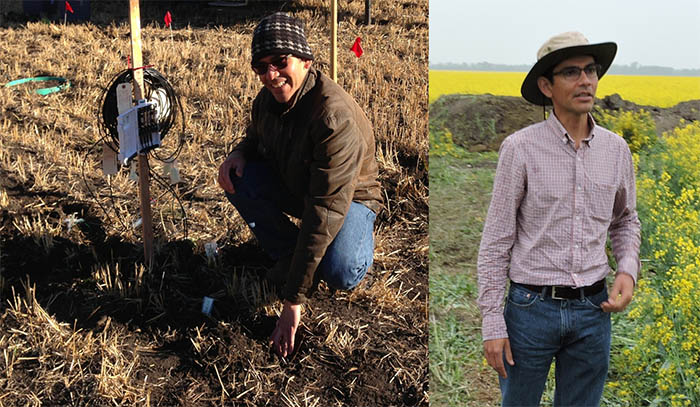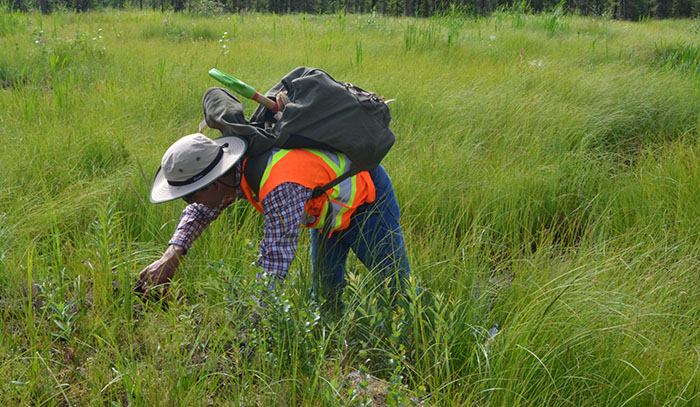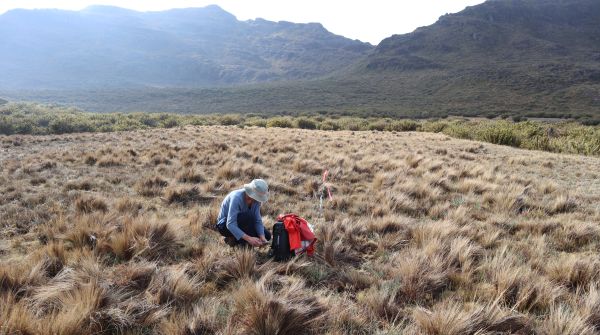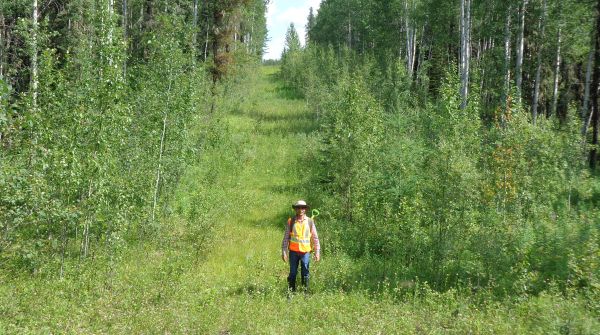

Professor
Department of Renewable Resources
Faculty of Agriculture, Life and Environmental Sciences (ALES).
University of Alberta
Office: 426 Earth Sciences Building
Office phone: (780) 492-2428. Email: ghernand@ualberta.ca
Guillermo leads the Sustainable Land Ecosystems Research Group
As a group, the research interests and foci encompass carbon, nitrogen and water cycling and dynamics in land ecosystems including croplands, grasslands, forests and alpine. For example, we examine sources, transformation, utilization, behavior, fate, and fluxes of carbon and nitrogen in land ecosystems (often also called agroecosystems) with particular focus on the relative responses, controlling factors, and feedbacks of greenhouse gas exchange and soil carbon sequestration to common and improved management options. Furthermore, field to landscape strategies for sustainable management, greenhouse gas mitigation, climate change adaptation, enhanced resilience of soil and whole ecosystems, improved nutrient and water use-efficiencies, and increased ecosystem services in agricultural systems are also subject of investigation. We aim to deepen, underpin, and extend the existing scientific knowledge on these relevant research areas in order to gain insights, to discover and establish principles, and ultimately to provide solutions for current challenging problems faced by the local, regional and global societies including environmental quality, natural resources conservation, and food and energy securities. Moreover, this collective work contributes to inform process modelling efforts, life cycle assessments, and provide the foundation for the development of policy towards carbon-negative and carbon-neutral systems.


Biosketch
Guillermo has been working as a faculty member at University of Alberta – Faculty of ALES since 2012. He previously worked as a scientist with Plant and Food Research Institute – New Zealand, a professor at the Faculty of Agricultural Sciences – University of Panama, a visiting research fellow at University of Hohenheim – Germany, and a postdoctoral researcher with USDA–ARS at the National Laboratory for Agriculture and the Environment – Iowa, United States. Guillermo’s B.Sc. is from EARTH University, Costa Rica, and his Ph.D. is from Purdue University, Indiana, United States, and holds professional agrologist (P.Ag.) designation in Alberta.
Academic Awards:
- NACTA Educator Award. International teaching recognition awarded by the North American Colleges and Teachers of Agriculture (NACTA).
- Rutherford Award for Excellence in Undergraduate Teaching. University of Alberta.
- NACTA Teaching Award of Merit. Adjudicated internally by Faculty of ALES on behalf of North American Colleges and Teachers of Agriculture (NACTA).
- Teacher of the Year Award. Faculty of ALES – University of Alberta.
- Humboldt Research Fellowship. Alexander von Humboldt Foundation and University of Hohenheim.
- Ed and Peggy Tyrchniewicz Award for Innovation in Teaching. Faculty of ALES – University of Alberta.
- Alberta Science and Technology (ASTech) Award for Innovation in Agricultural Science (as team award). ASTech Foundation.
- Inspiring Young Scientist Award. American Society of Agronomy (ASA).
- Bilsland Dissertation Fellowship. Purdue University.
- Frederick N. Andrews Award for Environmental Research. Purdue University.
- Fulbright Scholarship. US Department of State.
- Business, Environment, Learning and Leadership (BELL) Award (as team award). World Resources Institute (WRI).
Within UAlberta, Guillermo also participates in the Sustainability Council, Land Reclamation International Graduate School (LRIGS - program sponsored by NSERC CREATE), Alberta School of Forest Science and Management (ASFSM) as well as the Alberta Centre for Reclamation and Restoration Ecology (ACRRE).
Also, Guillermo serves to the broad community as an elected Councilor of the Alberta Institute of Agrologists (AIA) as well as in the Prizes and Awards Committee of the International Union of Soil Sciences (IUSS).
How to pronounce Guillermo's name?
Academic profiles are available at the following websites:
@ WebofScience ResearcherID: I-5429-2013
Within UAlberta, Guillermo participates in the Sustainability Council, Land Reclamation International Graduate School (LRIGS - program sponsored by NSERC CREATE) as well as the Alberta Centre for Reclamation and Restoration Ecology (ACRRE).